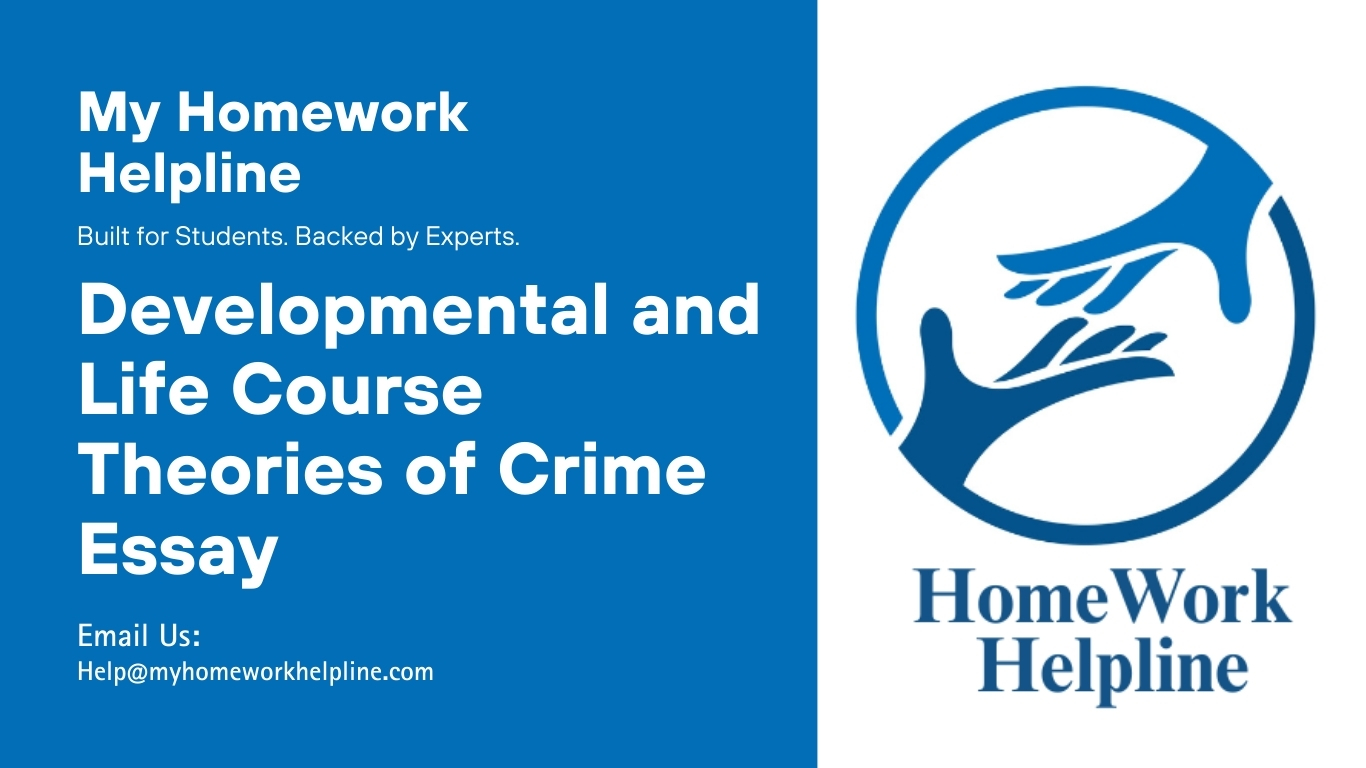Developmental and Life Course Theories of Crime Essay
Developmental and life course theories of crime aim at exploring changes in offending and problematic behaviors over time due to changes in social arrangements. The developmental and life course perspective of criminology started in the late 1980s and has increasingly developed, gaining both empirical and theoretical attention from scholars and practitioners. The theory aimed to challenge the adolescent-limited criminology theory because it ignored individual differences between offenders, was based on self-reported surveys, used the social justice perspective, and rejected the epidemiology of crime to favor new theories (McGee & Farrington, 2015). The goal of developmental and life course theories of crime is to explain the onset, persistence, and resistance of offending behavior over an individual’s life course.
The developmental and life course theories focus on age-graded causes and consequences of behavior, personal environment interactions, reciprocal influences, and distinct etiologies for offender types and alternative perspectives of interventions (Ward, 2019). Examples of Life course theories include the social development model, interactional theory, situational action theory, developmental pathways model, and integrated cognitive antisocial potential theory. These theories differ from the psychological perspectives of criminology, which only focus on the onset and persistence of criminal behavior. Distinct principles characterize life course theories: time and place, lifespan, timing, linked lives, and agency (Black et al., 2010).
According to developmental and life course theories, a child’s anti-social and criminal behaviors are directly and indirectly mediated by social factors such as attachment to parents, transition to adult roles, stresses, structural adversity, and ineffective parenting. These theories acknowledge that self-interest and rational choices have a role to play in explaining human behavior. Changes in one’s social life and environment, such as ending a career, marriage, or relationship with parents and friends, can be risk factors or protective factors for criminal behavior.
Struggling with your criminology essay on developmental and life course theories of crime? Our expert team provides criminology homework assistance tailored for essays and assignments. Receive step-by-step guidance, plagiarism-free content, and timely submission support. Let our professionals help you clearly explain crime theories and social influences, ensuring your essay meets academic standards and earns top grades.
References
Black, B. P., Holditch-Davis, D., & Miles, M. S. (2009). Life course theory as a framework to examine becoming a mother of a medically fragile preterm infant. Research in Nursing & Health, 32(1), 38-49. https://doi.org/10.1002/nur.20298
McGee, T. R., & Farrington, D. P. (2015). Developmental and life‐Course theories of crime. In A. R. Piquero (Ed.), The handbook of Criminological theory (pp. 336-354). John Wiley & Sons.
Ward, J. T. (2019). Developmental and life-course theories of crime and deviance. In M. D. Krohn, N. Hendrix, G. P. Hall, & A. J. Lizotte (Eds.), Handbook on crime and deviance (p. 283–308). Springer Nature. https://doi.org/10.1007/978-3-030-20779-3_15

